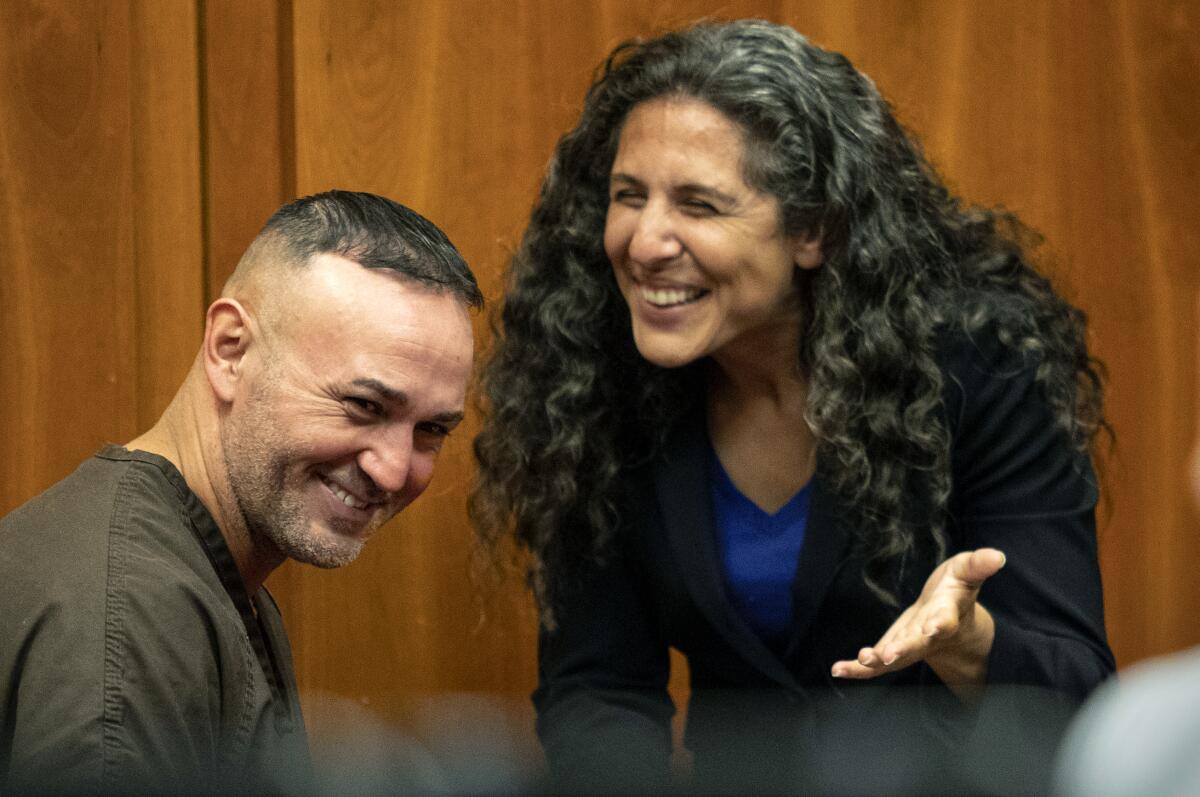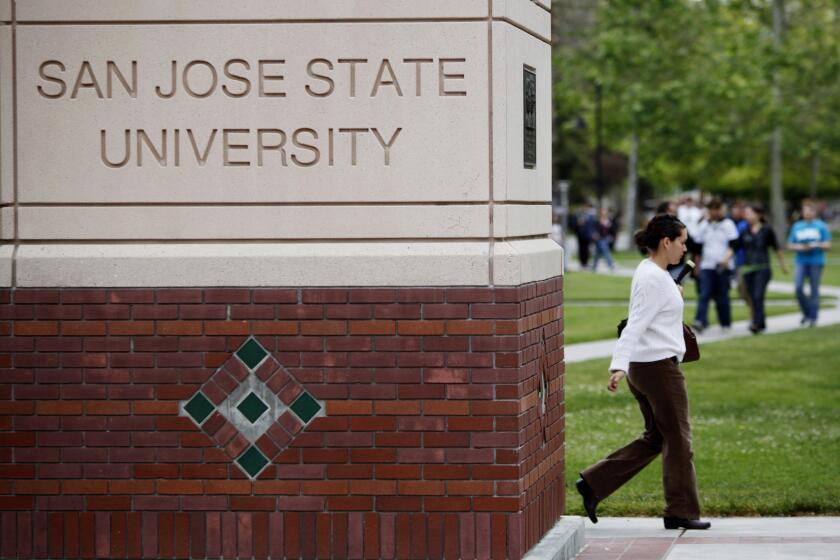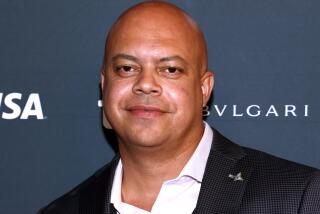San José to pay record settlement of $12 million to man exonerated in 2002 gang shooting

- Share via
San José will pay $12 million to a man who was imprisoned for 17 years for a drive-by shooting he did not commit, the largest settlement paid by the city in a police misconduct case.
The settlement, approved Tuesday by the City Council, came after a federal judge rejected the city’s arguments to dismiss a federal lawsuit filed by Lionel Rubalcava, who was convicted of a 2002 gang shooting.
Members of the council approved the settlement but did not issue a statement or comment on the payment.
Rubalcava had been identified by three witnesses but was freed and exonerated in May 2019 after they recanted and cellphone tracking evidence suggested he was driving to Hollister at the time of the shooting.
In the lawsuit, Rubalcava’s attorneys argued that police officers Topui Fonua, Joe Perez and Steven Spillman ignored evidence that exonerated Rubalcava and “deliberately misrepresented witness statements” that led to the conviction.
L.A. County will pay $27 million to settle shooting, wrongful conviction lawsuits against Sheriff’s Department
In her ruling against the city’s request to dismiss the case, Judge Beth Labson Freeman wrote that a jury could infer that three San José officers “falsified the police reports for the purpose of depriving [Lionel] Rubalcava of constitutional rights.”
The case was set to go to trial in August.
“Given the clear evidence of serious police misconduct we would have put on at trial, the cty of San José made the right move today,” said Amelia Green, one of Rubalcava’s attorneys. “Not only should our client never have been prosecuted — the city should have long ago accepted responsibility for Lionel’s wrongful conviction.”
After his release from Pleasant Valley State Prison, Rubalcava sued the city, arguing that his civil and due-process rights were violated by detectives after they ignored evidence pointing to his innocence.
By approving a $25-million payout to a man shot and paralyzed by deputies with no discussion or call for change, the Board of Supervisors in effect said nothing went wrong in the incident.
‘We are supposed to be able to trust police officers for our protection and safety,” Rubalcava said in a statement. “In my case, the San José Police Department singled me out and framed me for a crime I didn’t commit.”
Rubalcava was arrested three days after the April 5, 2002, shooting of 19-year-old Raymond Rodriguez, who was left partially paralyzed.
Police and prosecutors argued during the trial that the shooting had been prompted by a gang rivalry.
But one of the witnesses recanted their testimony at trial, and attorneys for Rubalcava argued that the motive police suggested for the shooting did not make sense because he and Rodriguez allegedly belonged to separate Norteño street gangs and were not rivals.
Rodriguez and his mother both told a detective that they did not think Rubalcava had been the shooter and that Rodriguez had been targeted by rival Sureño gang members.
Rubalcava was freed after the Northern California Innocence Project at Santa Clara University School of Law picked up his case. The Santa Clara district attorney’s office then ordered its conviction integrity unit to reexamine the case, and the other witnesses recanted their testimony. The office asked the superior court to vacate Rubalcava’s conviction in 2019.
A San José State professor who was serving as a liaison for students demonstrating against the Israel-Hamas war was suspended, claims ‘academic freedom suppression.’
Rubalcava was represented by attorneys with Neufeld Scheck Brustin Hoffmann & Freudenberger.
“Neither Lionel nor the victims were served by the corrupt police work that led to an innocent man being prosecuted and the true shooter going free,” said attorney Nick Brustin. “Lionel’s case is yet another example of how racism infects the criminal legal system, in which police too often are willing to prosecute any available young man of color.”
More to Read
Sign up for Essential California
The most important California stories and recommendations in your inbox every morning.
You may occasionally receive promotional content from the Los Angeles Times.














